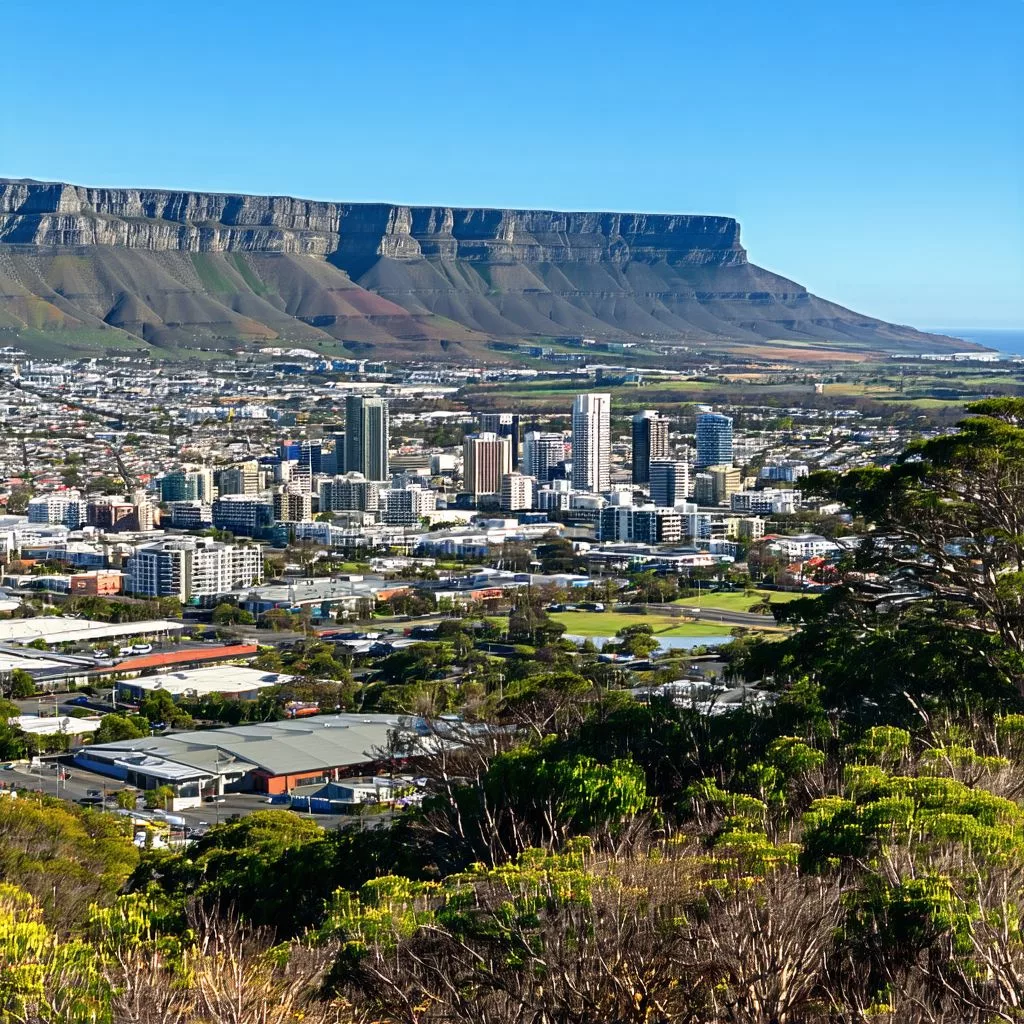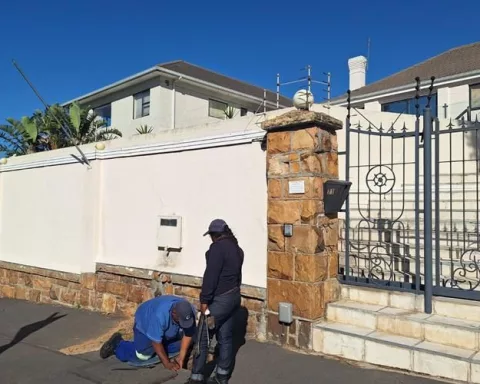In Cape Town, residents are coming together to shape their city’s future through important discussions about urban planning. As the deadline for public input on the Municipal Planning By-law approaches, community members are eager to share their ideas and opinions. Meetings and accessible information empower people to engage in this process, helping to create a fairer and more vibrant city. With new plans for affordable housing and a focus on inclusivity, Cape Town aims to build a future that reflects the dreams and needs of all its citizens.
What is the importance of public engagement in Cape Town’s urban planning?
Public engagement in Cape Town’s urban planning is crucial as it fosters inclusive governance, allowing residents to share insights on the Municipal Planning By-law (MPBL). This participatory approach ensures diverse community input, shaping a more equitable and vibrant urban future. Key meetings and accessible information empower citizens to contribute meaningfully.
Engaging Residents in Urban Development
In the bustling metropolis of Cape Town, a pivotal conversation is taking place, drawing in both residents and stakeholders who are invested in the city’s urban future. As the City of Cape Town enters the final stretch of collecting public input on proposed changes to the Municipal Planning By-law (MPBL), the atmosphere is charged with a sense of urgency. This critical document guides development and land use throughout the city, and with the deadline for comments set for 25 October 2024, it is crucial for citizens to make their voices heard.
This initiative represents a vital chapter in the ongoing narrative of Cape Town’s urban development. Since the draft revisions to the MPBL were first introduced to the public on 22 July 2024, a 90-day consultation period has allowed residents to offer their insights, underscoring Cape Town’s commitment to inclusive governance. This participatory approach not only values the diverse opinions of its citizens but also emphasizes the shared responsibility in shaping urban landscapes. Such processes echo the democratic principles seen in past movements for urban reform, where the collective input of citizens played a key role in designing cityscapes that meet communal needs and aspirations.
Cape Town’s officials, spearheaded by Deputy Mayor and Mayoral Committee Member for Spatial Planning, Alderman Eddie Andrews, have made commendable efforts to ensure widespread engagement. A significant milestone in this initiative is an in-person discussion planned for 22 October 2024 at the Lentegeur Civic Centre in Mitchells Plain. This gathering offers a valuable opportunity for direct dialogue between the community and city planners, fostering transparency and mutual understanding. Such meetings are essential for unraveling the complexities of legislative changes and making them accessible to the general public.
Innovations in Urban Planning
A major highlight of the proposed revisions is the introduction of new land use rights designed to promote the development of affordable rental housing. This initiative mirrors global urban planning trends where cities strive to tackle housing shortages while ensuring fair access to living spaces. The inclusion of maps displaying targeted areas for these developments showcases the city’s strategic planning efforts, demonstrating a keen awareness of Cape Town’s unique urban landscape. Balancing spatial justice with economic viability is critical in this context.
Cape Town’s proactive distribution of information has been a cornerstone of this consultation process. Residents have been given extensive access to essential documents via the city’s official website, including the draft MPBL, summaries of proposed changes, and explanatory notes. This transparency not only empowers citizens with knowledge but also encourages them to engage thoughtfully with the proposed amendments. This approach reflects modern digital governance practices where technology acts as a conduit between government authorities and citizens.
Throughout the consultation period, the city organized three clarification meetings, with two held online to accommodate those unable to attend in person during after-hours. This hybrid model exemplifies a flexible response to contemporary challenges, echoing how cities worldwide have embraced digital solutions during unprecedented times, such as the global pandemic. The strong turnout at these meetings highlights the community’s vested interest in the future of their city, underscoring a robust civic culture that prioritizes participatory governance.
Preparing for a Collaborative Urban Future
Alderman Andrews has highlighted the significance of these meetings, noting the considerable public interest they generated. The enthusiasm of citizens to participate is a positive sign of an engaged community ready to contribute to Cape Town’s development narrative. This reflects the participatory spirit seen in historical urban planning movements, where communities collectively envisioned and realized sustainable urban environments.
As the deadline for feedback approaches, the city gears up for the next stages of this collaborative journey. After the public participation period concludes, city officials will carefully review all submissions. This meticulous process showcases a nuanced approach to urban governance, where every comment, question, and suggestion is considered. It underscores the understanding that urban planning is a collaborative effort, weaving diverse community inputs into the fabric of city policy.
Analyzing this process, we can draw parallels with artistic movements that sought to redefine spaces and perceptions. Just as the Impressionists once challenged traditional art forms to capture the modern world, contemporary urban planners aim to redefine cityscapes to enhance the lived experiences of their inhabitants. Revising the MPBL is more than an administrative task; it represents an opportunity to reimagine Cape Town’s urban identity, harmonizing it with its rich and diverse heritage.
Envisioning an Inclusive and Vibrant Cape Town
As Cape Town teeters on the brink of potentially transformative changes to its municipal planning framework, the collective efforts of its residents, stakeholders, and city officials will determine the city’s path toward a more inclusive, equitable, and vibrant future. Whether through the lens of historical precedence or contemporary innovation, the evolving narrative of Cape Town’s urban planning stands as a testament to the enduring power of community-driven change. By embracing a participatory approach, Cape Town can craft a future that reflects the aspirations of its people and the unique character of its urban environment.
FAQ on Cape Town’s Urban Planning Engagement
What is the Municipal Planning By-law (MPBL) and why is it important?
The Municipal Planning By-law (MPBL) is a critical framework that guides development and land use throughout Cape Town. It sets the rules and procedures for how land can be used and developed, influencing various aspects of urban living. Engaging with the MPBL is essential because it directly affects the community’s quality of life, housing availability, and overall urban environment.
How can residents participate in the planning process?
Residents can actively participate in the planning process by attending public meetings, submitting their comments and suggestions, and accessing information provided by the City of Cape Town. The city has organized several forums, including in-person discussions and online clarification meetings, to ensure that everyone has an opportunity to contribute their ideas and opinions before the feedback deadline of October 25, 2024.
What are the key highlights of the proposed revisions to the MPBL?
The proposed revisions introduce new land use rights aimed at promoting the development of affordable rental housing. This initiative addresses the pressing housing shortage in Cape Town and emphasizes inclusivity in urban development. Additionally, the city provides maps indicating targeted areas for these developments, showcasing a strategic approach to enhancing the urban landscape.
What role does technology play in the public engagement process?
Technology plays a crucial role in facilitating public engagement by providing residents with easy access to essential documents and information about the MPBL. The City of Cape Town has made draft revisions, summaries, and explanatory notes available online, ensuring transparency and allowing citizens to engage thoughtfully. Furthermore, the hybrid format of meetings—both online and in-person—accommodates varying schedules and preferences.
Why is public engagement considered vital for Cape Town’s urban future?
Public engagement is essential because it fosters a sense of ownership and responsibility among residents regarding their city’s development. By allowing diverse community voices to shape urban planning processes, Cape Town can create a more equitable and vibrant environment that reflects the needs and aspirations of all its citizens. This participatory governance model strengthens civic culture and enhances the overall quality of urban life.
How will the city address the feedback from the community after the consultation period ends?
After the public participation period concludes, city officials will meticulously review all submissions from the community. This process ensures that every comment, question, and suggestion is considered in shaping the final revisions to the MPBL. The city’s commitment to a collaborative approach means that the feedback will be woven into the fabric of urban policy, demonstrating a genuine responsiveness to residents’ concerns and aspirations.












